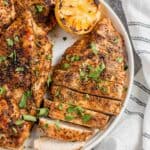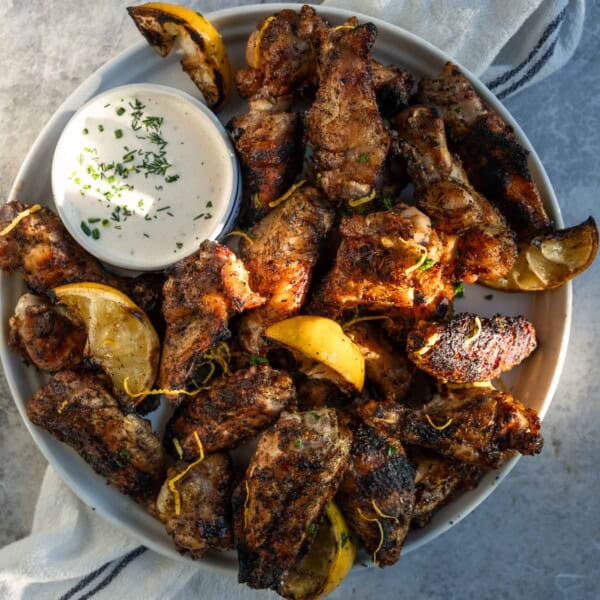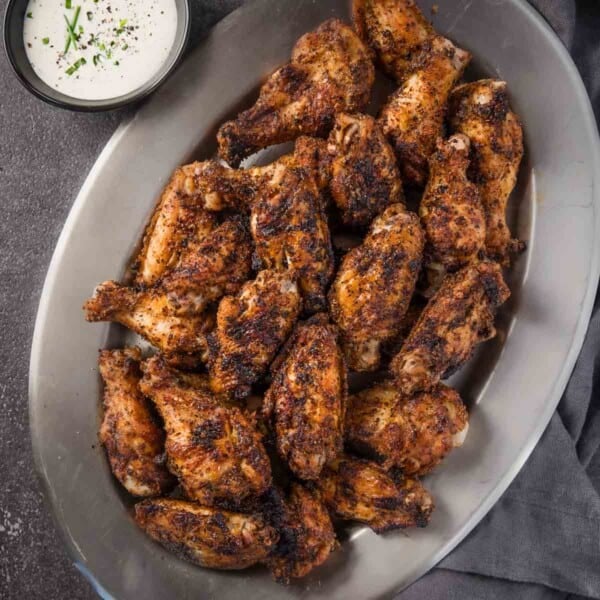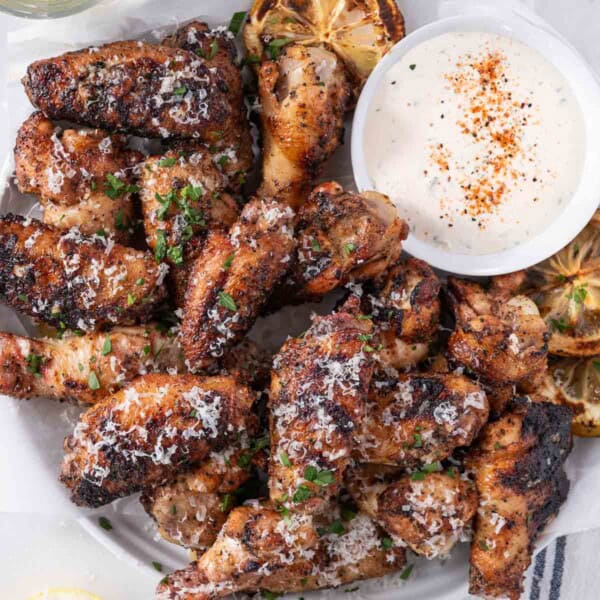This post may contain affiliate links. Read more at our disclosure policy.
If you are looking for a quick, easy, and healthy weekday meal, Grilled Boneless Chicken Breast recipes are the way to go and a family favorite. Doused in a savory dry rub, these are juicy and packed with flavor, and easy to modify to add your own twist.
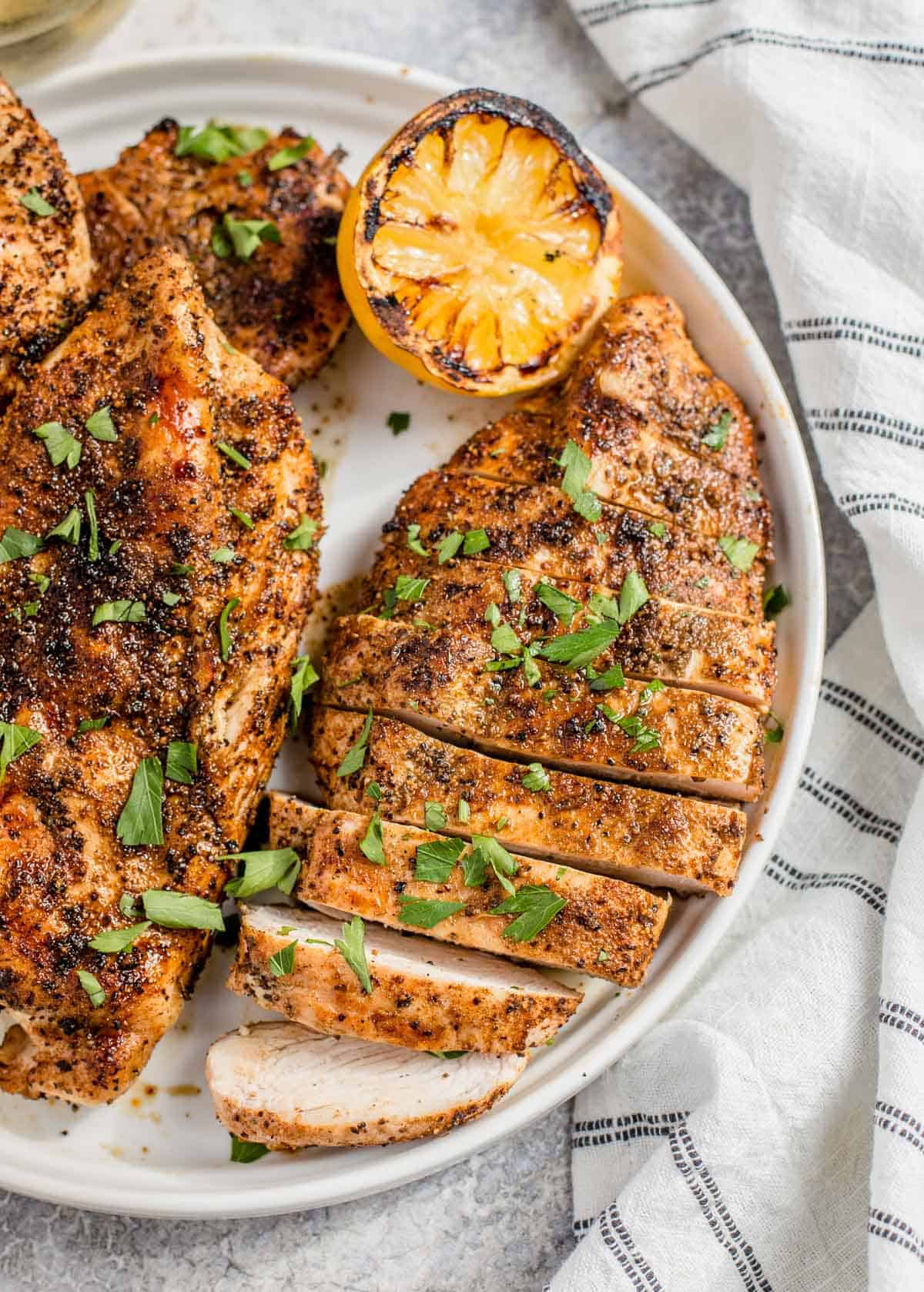
Table of Contents
Chicken, especially grilled chicken, can be one of the most under rated cuts of meat, and yet remains one of the most common family dinners. And if you are like me, I want an easy way to get the most flavor out of a boneless skinless chicken breast. Grilling is our go to method. For more grilled chicken recipes check out our Buffalo Stuffed Chicken Breast and our Goat Cheese Stuffed Chicken Breast recipes.
Sourcing
Not all chicken is created equally. We know this because we raise chickens on our farm. The right breed, the diet they eat, and access to movement all help build good intramuscular and nutrient density and flavor. Be sure you source the best chicken you can find, ideally opting for local and organic chicken. The breasts should be thick and uniform in size.
Avoid buying those packs where you’ll find smaller breasts or even cutlets, which are often pieces of chicken breasts that have been trimmed and repackaged. Those are better for stir-fry dishes rather than grilling.
Boneless Chicken Breast Recipe Preparation
The secret to perfectly grilled boneless skinless chicken breasts is to use a meat tenderizer, or hammer, to flatten the thicker portion of the breast and make on uniform shape, like a steak. Because there is no skin, pounding the thicker side makes it easier to create that uniform shape.
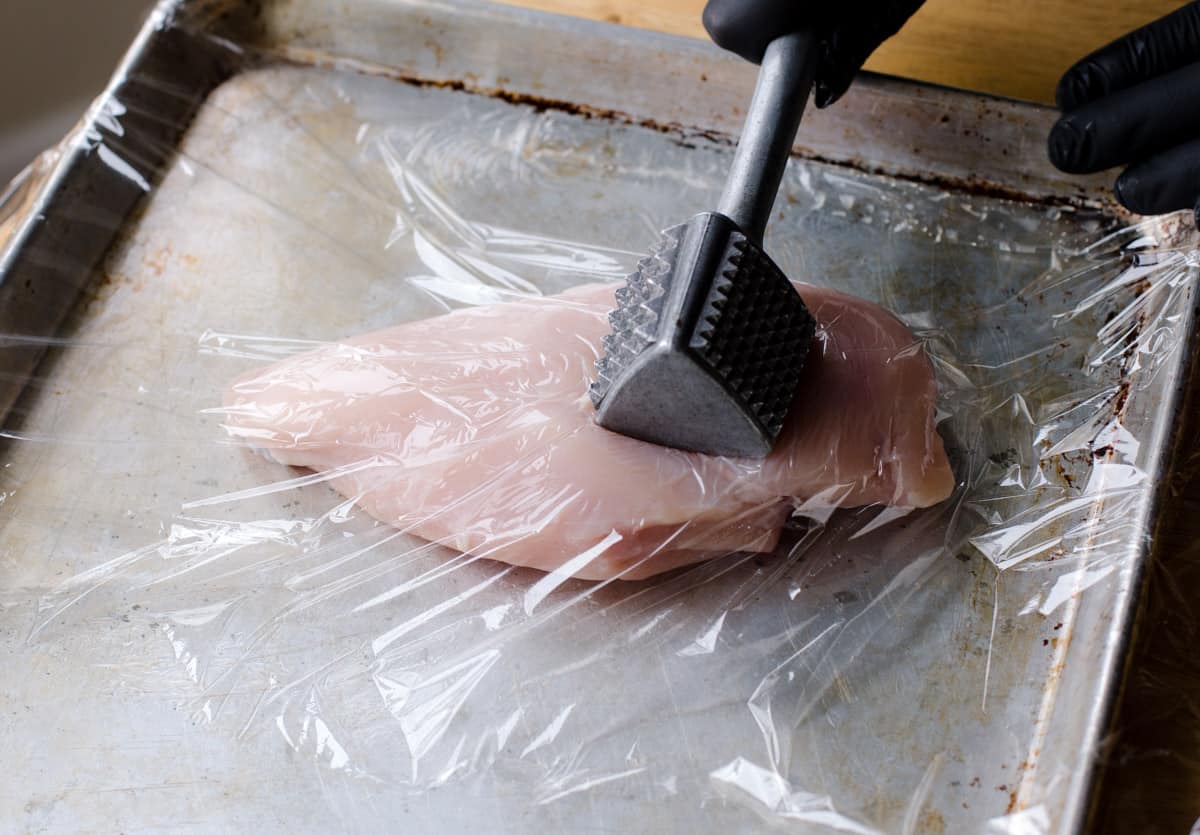
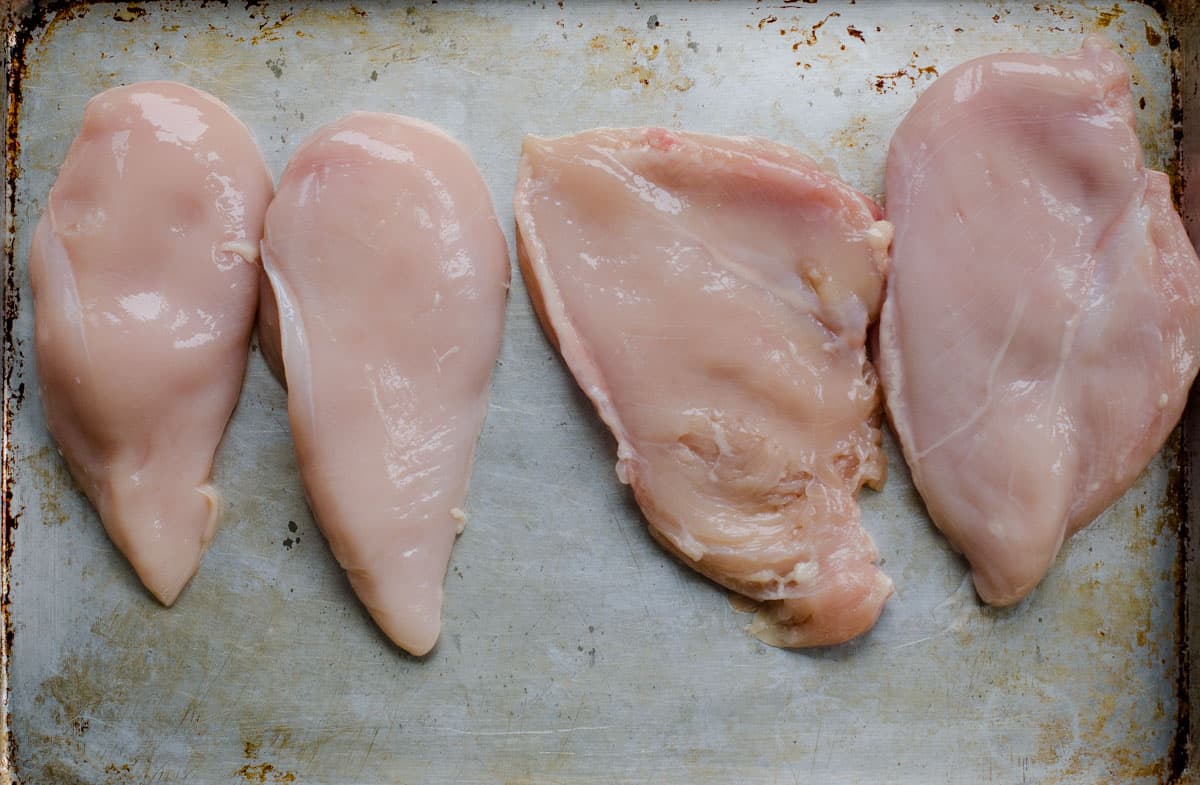
- Lay out the chicken on a cutting board or sheet pan and cover with plastic wrap. We use plastic wrap so that it’s easy to see the chicken and to protect against splatters that could contaminate your kitchen.
- Using the meat tenderizer (on the flat side, not the spiked side), gently strike the thicker portions of the breast. Try to angle the strikes so you are striking from the center of the breast toward the sides. This way you are moving the muscle to stretch rather than creating a potential hole. The goal is to make the chicken thickness uniform (so that one side is not thicker than the other).
- Pat the chicken dry with a paper towel so it’s ready for seasoning.
Chef’s Note: If you don’t have a meat tenderizer, you can use a hammer, but the hammer head is very small and can puncture the chicken. So if all you have is a hammer, make sure to pound very gently. Alternatively you can use a rolling pin.
Seasoning Boneless Chicken Breast
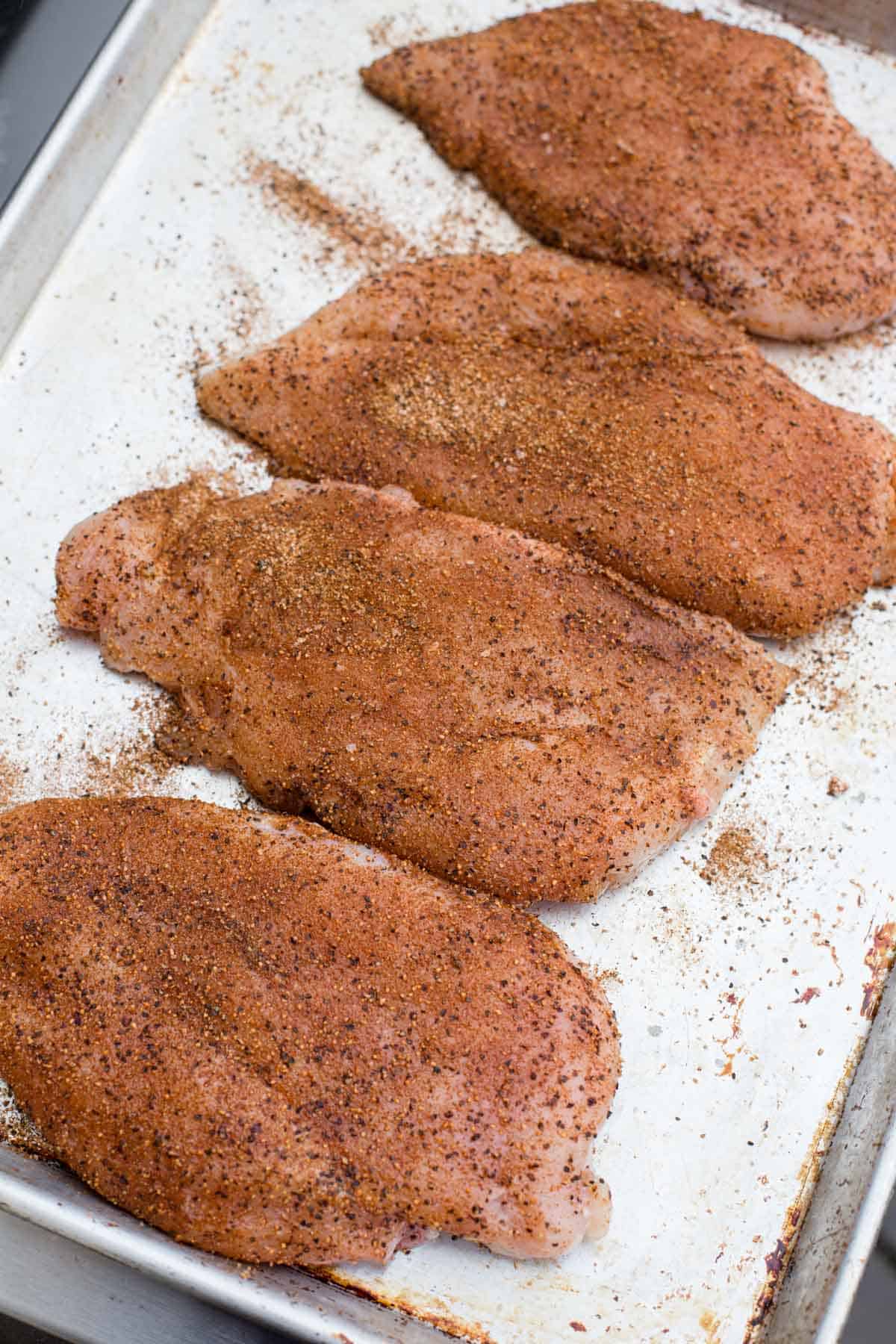
Start by coating the chicken breasts with olive oil as a binding agent to allow the seasoning to stick to the chicken breasts.
We use our all-purpose seasoning, which is a blend of sugar, salt, and savory herbs and spices to give a richer and earthy flavor with little heat. Plan on one tablespoon of seasoning per chicken breast.
Other chicken seasoning flavors to consider:
- Poultry Seasoning – This no-sugar rub is great because it has a good salt and savory flavor from herbs.
- Blackening Seasoning – This one has a little heat and is earthy in flavor. When cooked it will appear almost black in color.
- Cajun Seasoning – This has heat combined with herbal flavors from dried thyme and sage.
- Jerk Seasoning – Allspice brings a sweet and pungent flavor plus some heat in this unique flavor.
Grilling
Because boneless skinless chicken is thinner (due to pounding them) and will cook quickly, use a direct grilling method where the heat source is directly under the chicken. Target 450 degrees F over the direct heat using the dome thermometer. Because there is no skin, the risk of flare ups is low because there is no fat dripping into the flame.
Would you like to save this?
- Place the seasoned chicken over direct heat and grill, covered, for 6 – 7 minutes. It should develop a nice crust from the flame.
- Flip and continue to grill for additional 5 minutes. Start checking the temperature of the chicken with a good instant read thermometer, like the Thermoworks Thermapen One. Remove from the heat source when the internal temperature reads 160 degrees Fahrenheit.
- Let the chicken rest for 10 minutes. During this 10 minutes carryover cooking will bring the internal temperature of the chicken up to 165 degrees F, which is the recommended USDA temperature for cooked chicken. Then slice and serve with your favorite sides.
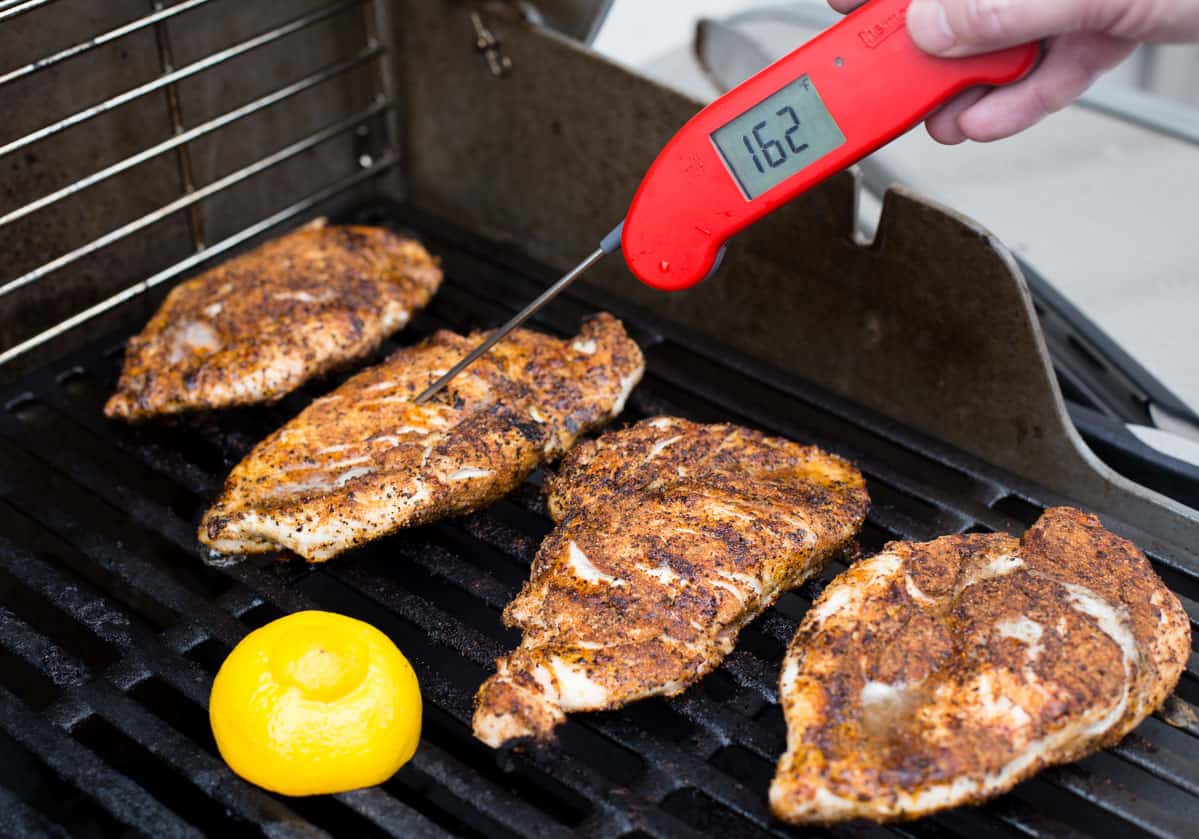
Modifications
If you don’t have a grill, this same process works for an indoor grill pan or cast iron pan. Follow the same steps and just place over medium heat and hot oil. Flip after a few minutes and then pull off when the temperature of the chicken reaches 160 – 165 degrees F.
This also makes a great salad if you use our balsamic chicken glaze as a dressing.
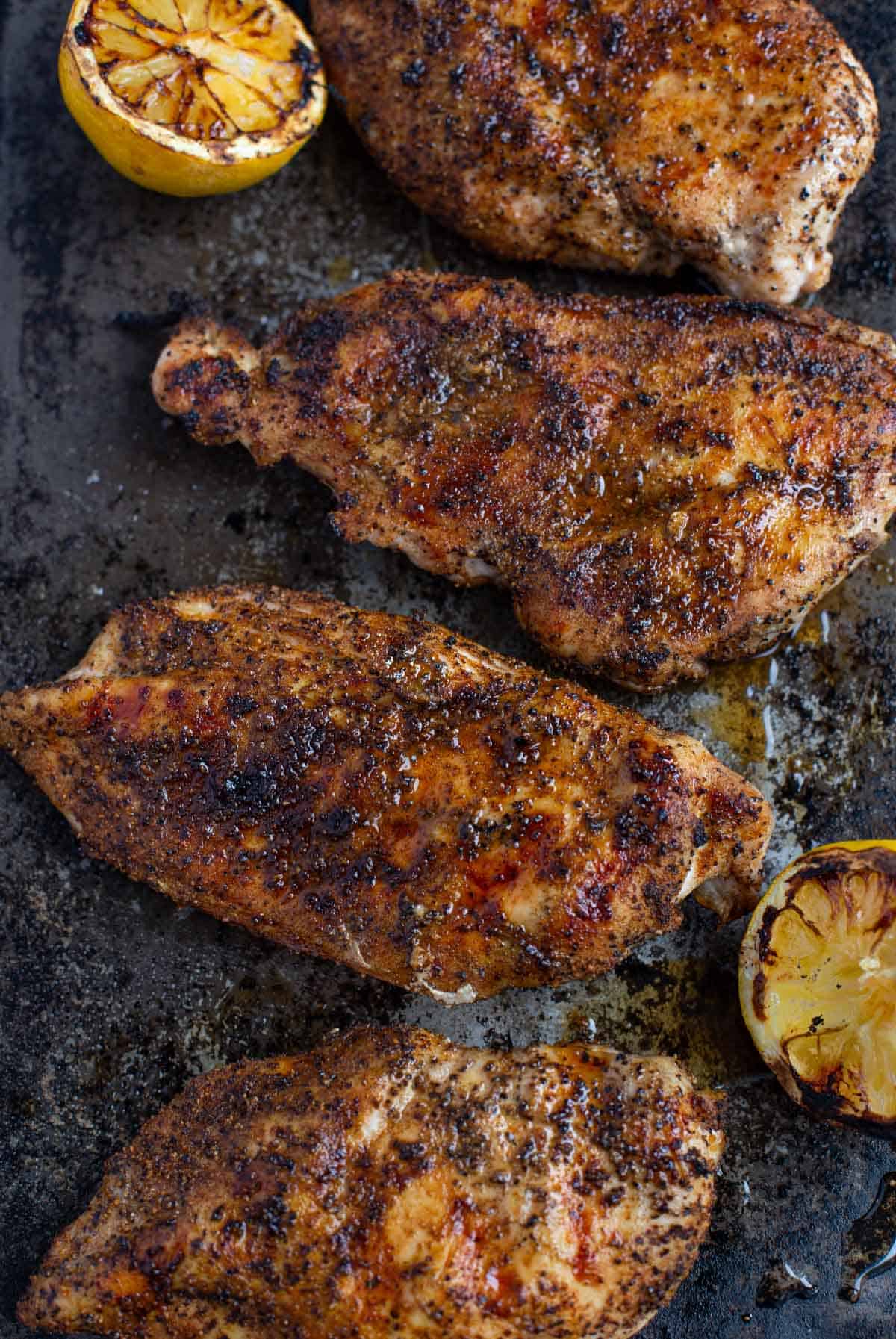
Wine Pairing for Grilled Chicken Breasts
Since there is no marinade for this grilled chicken recipe, and the flavors rely on the direct grilling and the savory poultry rub, we have a number of options for pairing here. Chardonnay (both oaked and unoaked versions) is one of my favorite pairings for grilled chicken.
They tend to be a little fuller in body and can stand up well to the grilled meat, and offer vibrant and lively flavors that balance out the dry rub on the grilled chicken. Viognier is another nice option, as is rosé if you’re feeling up for something pink. For reds you can’t go wrong with a bolder Pinot Noir, Gamay, or a Grenache for it’s fruitiness.
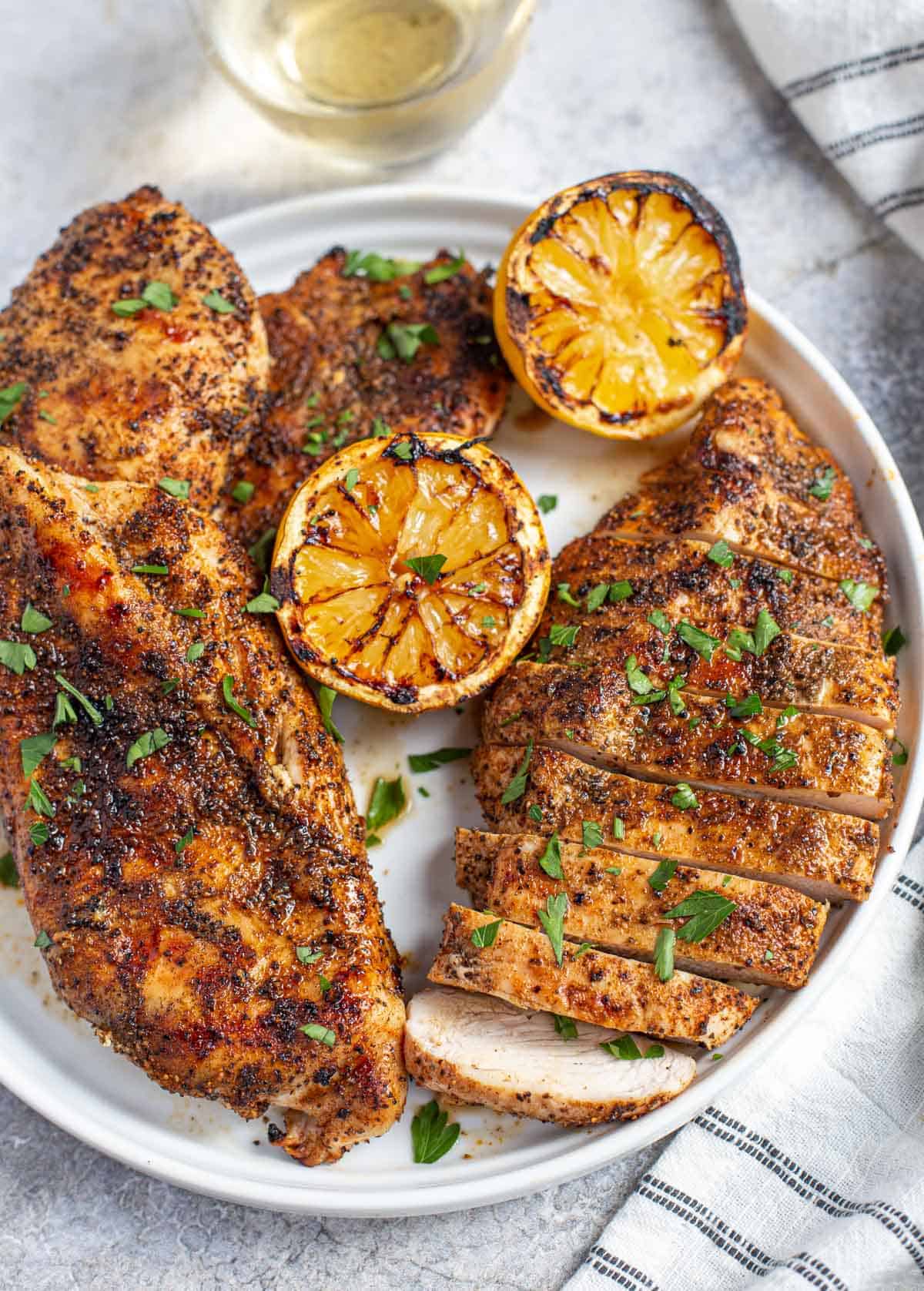
Food Safety
Be sure to consider using safe food handling practices. Especially when handling raw chicken.
- Do not use the same utensils or cutting boards on cooked food, that previously touched raw meat.
- Wash hands after touching raw meat and consider using gloves when prepping.
- Don’t leave food sitting out at room temperature for extended periods.
- The USDA recommends cooking poultry to 165 degrees F. We recommend 160 degrees F and allow carry over cooking to finish the cooking to 165 while it rests.
See more guidelines at USDA.gov.
More Grilled Chicken Recipes
- Perfect Grilled Chicken (every time)
- Grilled Blackened Chicken Breast
- Grilled Balsamic Glazed Chicken
- Jerk Chicken
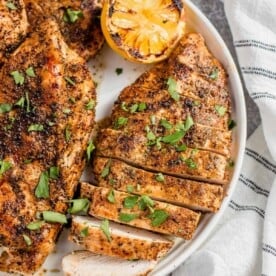
Savory Grilled Boneless Skinless Chicken Breast Recipe
Equipment
- Kitchen Meat Tenderizer
- Plastic Wrap
Ingredients
- 4 whole boneless skinless chicken breasts, Pounded out into thin even sized strips. See notes.
- 2 tablespoons extra virgin olive oil
- ¼ cup Ultimate Dry Rub
Instructions
- Prepare grill for two-zone grilling targeting 450 degrees Fahrenheit inside the grill.
- Coat the chicken breasts with olive oil and then liberally apply the dry rub.
- Place the seasoned chicken over direct heat and grill, covered, for 6 – 7 minutes. It should develop a nice crust from the flame. Flip and continue to grill for additional 5 minutes.
- Start checking the temperature of the chicken with a good instant read thermometer after 10 minutes total grill time. Remove from the grill when the internal temperature of the chicken reaches 160 degrees F and let rest for 10 minutes. Slice and serve.
Notes
- Lay out the chicken on a cutting board or sheet pan and cover with plastic wrap. We use plastic wrap so that it’s easy to see the chicken and to protect your kitchen from any splattering.
- Using the meat tenderizer (on flat side, not the spiked side), gently strike the thicker portions of the breast. Try to angle the strikes so you are striking from the center of the breast toward the sides. This way you are moving the muscle to stretch rather than creating a potential hole. The goal is to make the chicken thickness unison (so that one side is not thicker).
- Pat the chicken dry with a paper towel so it’s ready for seasoning.
Nutrition
Nutrition information is automatically calculated, so should only be used as an approximation.



